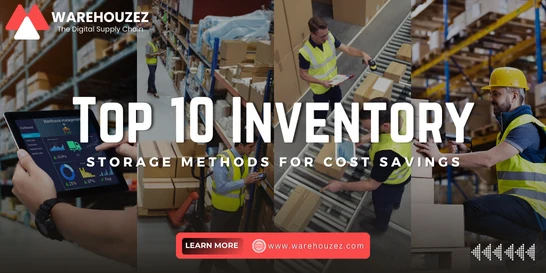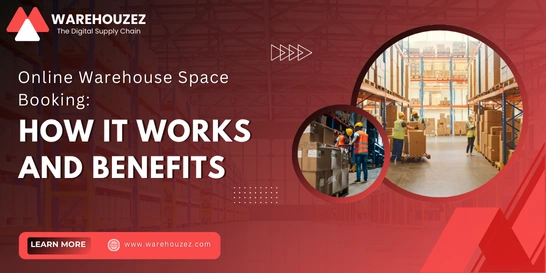What Is Shipping Insurance And Why Do You Need It?
What Is Shipping Insurance And Why Do You Need It?
In the world of logistics and supply chain management, ensuring the safe delivery of goods is crucial. Goods travel through long distances and often switch between different modes of transport. This can certainly expose them to various risks. That's why shipping insurance plays a prominent role in this process. It serves as a safeguard against the risks that come with transporting goods.
As e-commerce and global trade grow, the importance of reliable shipping insurance has increased. It provides peace of mind by offering financial compensation if goods are damaged or lost during transit. This protection helps maintain smooth operations and ensure customer satisfaction.
In this blog post, we will understand what shipping insurance is and why you need it. So, let's dive in!
What is Shipping Insurance and How it Works?
Shipping insurance is a type of coverage that protects against financial loss when goods are damaged, lost, or stolen during transit. It helps businesses navigate the challenges of modern logistics and supply chain management. With cargo insurance, companies can manage risks, protect their investments, and ensure customer satisfaction.
Shipping insurance works by providing compensation to the sender or receiver with an insurable interest in the shipment. To get shipping insurance, you can pay a premium based on the value of the goods or level of risk involved in the shipment. If something goes wrong during transit, you can file a claim with the insurance provider. They will then assess the loss and reimburse you as per the terms of the policy. This helps businesses recover from any unexpected incidents, safeguard their goods, and ensure financial stability.
When to Consider Shipping Insurance?
Here's a look at the scenarios when companies must consider cargo insurance to protect their goods.
High Value Items-
When you are shipping high value items, then insurance for shipments becomes important. This can include jewelry and luxury items. It helps protect your financial investment in case of damage, loss, or theft.
Fragile or Perishable Items-
Fragile items like crockery/electronics and perishables like food are often at risk during transit. Thus, shipping protection can cover all the losses if these items are damaged or spoiled.
Custom-Made or Unique Items-
Custom-made or unique items are often irreplaceable and require special handling. Shipping protection covers the cost of these items if they are damaged or lost in transit.
International Shipments-
International shipments are more prone to risks, such as customs issues, longer transit times, and handling by multiple carriers. Logistics insurance offers protection against all these issues.
Unreliable Routes-
Some routes are more risky and prone to delays, theft, or adverse weather conditions. If your shipment is going through a risky route, insurance can offer peace of mind by covering potential losses.
What Does Shipping Insurance Cover?
Here's what it covers:
• Loss • Damage • Theft • Natural disasters • Mishandling • Fire • Collision
The Role of Shipping Insurance in Logistics
Shipping insurance plays a crucial role in logistics and supply chain management. It ensures that goods are always protected against risks during the transit. Several issues often disrupt the supply chain and transportation process. These include damage, improper packaging, loss, spoilage, theft, or wear and tear. By providing financial compensation for these issues, shipping protection maintains the smooth operation of logistics. It impacts logistics operations by reducing the financial risk associated with transporting goods.
This allows companies to focus on their growth without worrying about potential losses. Effective shipping risk management is another key aspect. It helps companies manage the financial implications of unexpected events. This protection not only safeguards shipments but also contributes to overall supply chain efficiency.
Reasons Why You Need Shipping Insurance
Shipping insurance not only safeguards your valuable goods but also enhances customer satisfaction.
Here's a closer look at the reasons why you need shipping insurance:
Financial Protection Against Potential Losses
Insurance for shipments provides the much-needed financial protection. It covers the costs of goods that are damaged, worn and torn, or stolen. With it, businesses will have to bear the burden of these losses. This can be more significant for high value, fragile, tailor-made, and unique items. With shipping protection, companies can manage potential financial setbacks and recover their investment. This ensures that unexpected instances do not negatively impact their bottom lines.
Building Customer Trust and Satisfaction
Having logistics insurance helps enhance customer trust and satisfaction. When customers know that their purchases are protected, they certainly feel confident about their transactions. This can further lead to greater customer loyalty and repeat purchases. Additionally, if any issues arise during transit, shipping coverage allows for quicker resolution. This can further improve the customer experience and reinforce the company's reputation.
Meeting Regulatory Requirements
In some industries and regions, having cargo insurance is not just a choice but a requirement. Certain regulations mandate that businesses must insure their shipments to ensure compliance with legal standards. By adhering to these requirements, companies avoid legal issues. This demonstrates their commitment to responsible business practices and safeguards their shipments.
Peace of Mind For Businesses and Customers
Shipping protection provides peace of mind for both businesses and customers alike. For businesses, it reduces the stress associated with financial and transportation uncertainties. For customers, knowing that their goods are insured offers reassurance that they will be compensated in case of any mishaps. This peace of mind contributes to a smoother, more positive shopping experience. It also fosters confidence in the company’s ability to handle potential supply chain issues effectively.
Summing Up
To sum it up, shipping insurance is essential for seamless logistics. It offers financial protection against losses and enhances customer trust. It also helps meet regulatory requirements and offers peace of mind for both businesses and customers. By investing in cargo insurance, you safeguard your goods and ensure smooth supply chain operations. It supports risk management and reinforces a reliable as well as customer-focused business.



